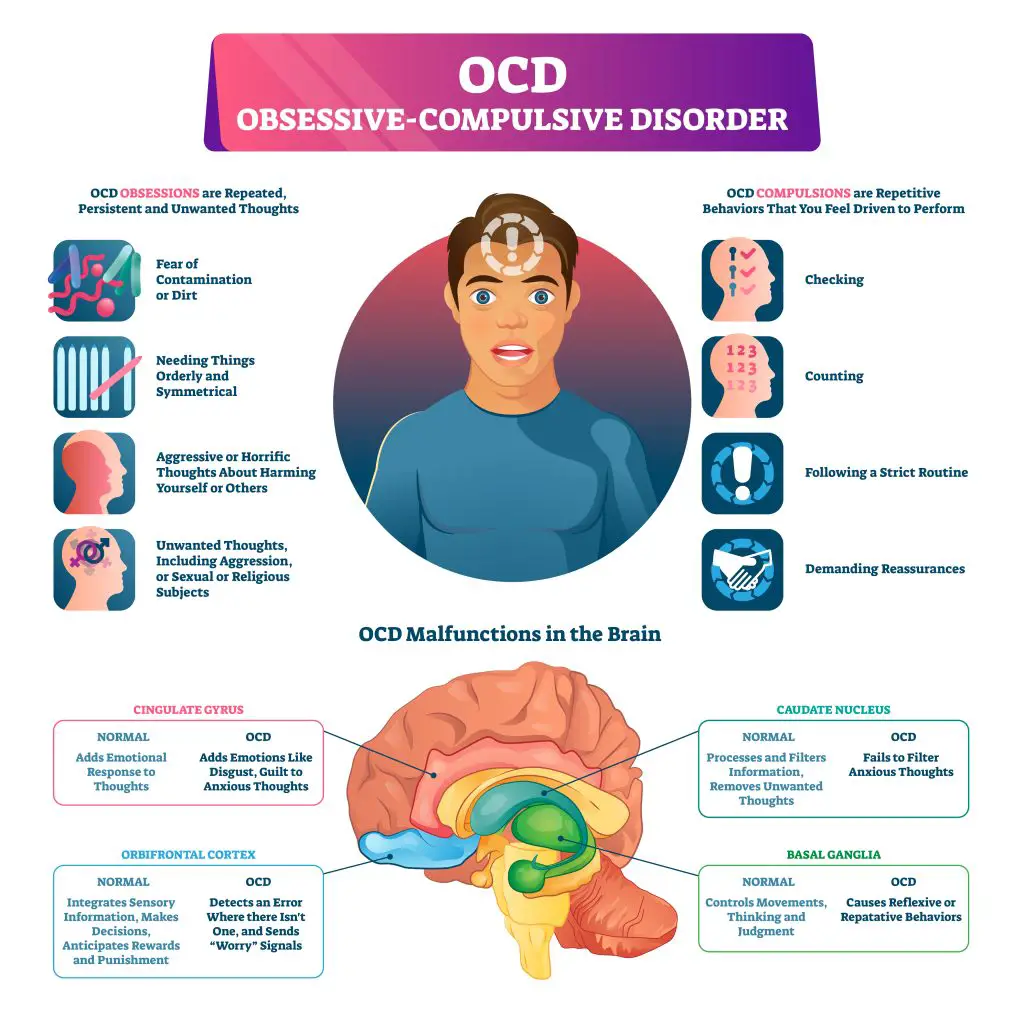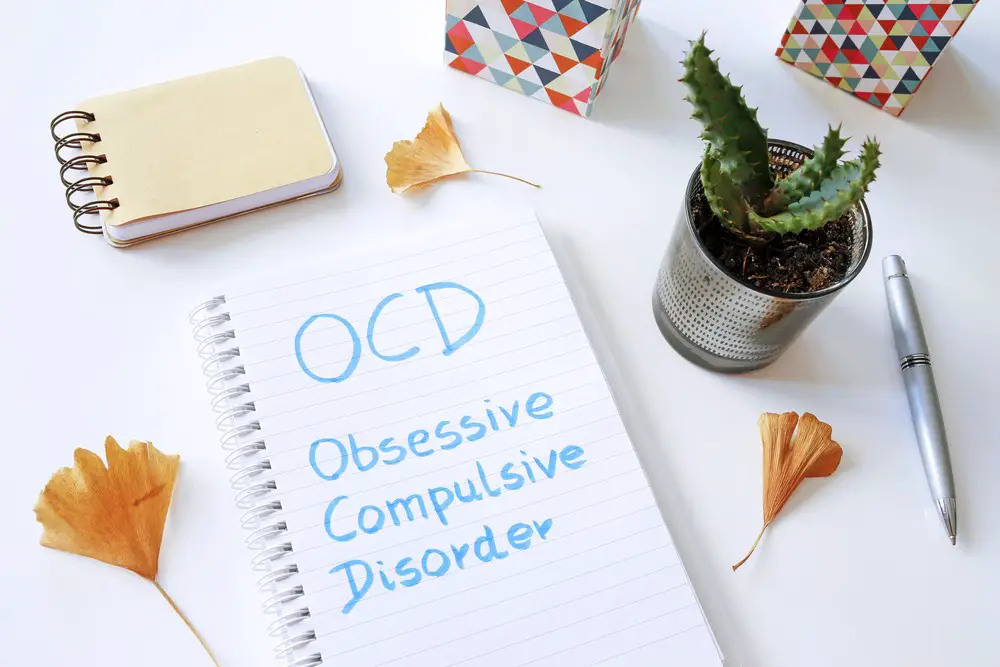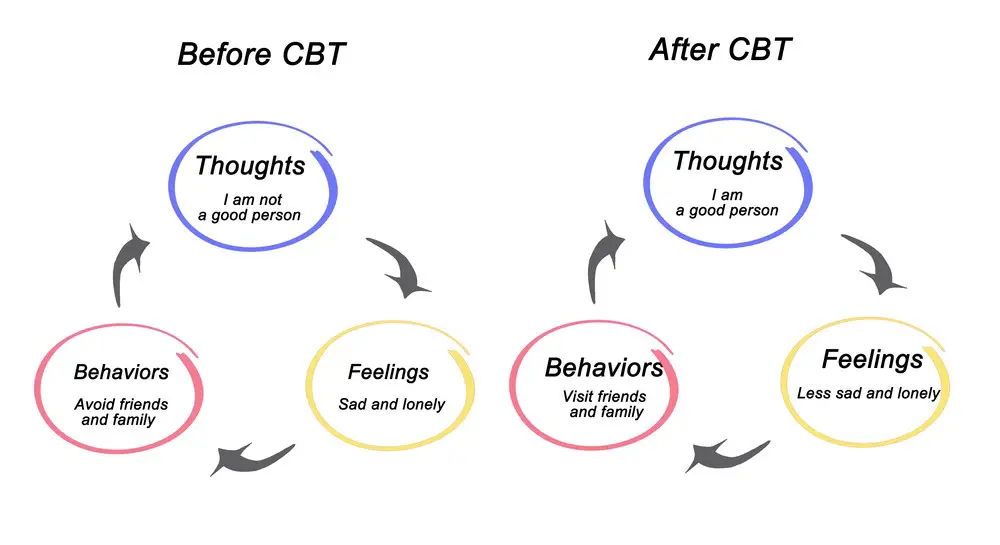Parenting a child with Obsessive-Compulsive Disorder (OCD) can be a unique and challenging experience. To navigate this journey and support your child effectively, it’s vital to gain a deeper understanding of OCD and how it manifests in your child’s life. By equipping yourself with practical tips and strategies, you’ll be more able to help your child cope with their OCD in a nurturing and empathetic way.
It’s crucial to recognize the signs of OCD in your child and how it impacts their daily life. This knowledge will empower you as a parent to create a supportive environment and seek appropriate treatment options. Additionally, it’s essential to remain patient and empathetic throughout the process, as helping a child with OCD can be a gradual process that often requires ongoing support and commitment.
Key Takeaways
- Gain a deeper understanding of OCD to support your child’s needs effectively
- Recognize the impact of OCD on your child’s daily life and create a supportive environment
- Remain patient and empathetic while seeking appropriate treatment and providing ongoing support
 Understanding OCD
Understanding OCD
Obsessive Compulsive Disorder (OCD) is a mental health condition characterized by persistent, unwanted thoughts and repetitive behaviors. You need to recognize the signs and symptoms of OCD and understand the diagnosis process to support your child better.
Common Symptoms
OCD can manifest in various ways, and each person’s experience may differ. Here are some common obsessions and compulsions to watch out for:
- Obsessions: Unwanted, intrusive thoughts or fears that cause distress, including:
- Fears of germs or contamination
- Thoughts of harm coming to oneself or loved ones
- Perfectionism or the need for things to be “just right”
- Compulsions: Repetitive behaviors or rituals performed to relieve anxiety or prevent imagined consequences. Examples include:
- Excessive cleaning or hand washing
- Repeated checking (e.g., locks, appliances)
- Counting, tapping, touching, or arranging items
Remember that not every child with OCD will display the same symptoms. Symptoms can change over time, so it’s important to pay close attention to your child’s behavior.
 Diagnosis Process
Diagnosis Process
If you suspect your child might have OCD, the first step is to consult a mental health professional. They will evaluate your child’s symptoms and determine if they meet the criteria for an OCD diagnosis. The process typically includes:
- Interview: The therapist will ask questions about your child’s obsessions and compulsions to understand their behaviors and distress levels better.
- Assessment: Your child may be asked to complete standardized questionnaires designed to measure OCD symptoms and severity.
- Evaluation: Based on the information gathered, the mental health professional will decide if a diagnosis of OCD is appropriate.
It’s essential to be patient and open-minded during this process. Early intervention can significantly improve your child’s quality of life and help them manage their symptoms.
Key takeaway: Recognizing the common symptoms of OCD is crucial for early intervention. The diagnosis process involves interviews and assessments by a mental health professional to determine the appropriate course of action. Always be attentive and supportive of your child as they navigate this journey.
 How OCD Affects a Child
How OCD Affects a Child
Obsessive-Compulsive Disorder (OCD) can have significant effects on a child’s life. In this section, we will explore how OCD can impact a child’s emotional growth and daily life. By understanding these impacts, you can better support and guide your child through their journey with OCD.
Impact on Emotional Growth
The stress and fears produced by OCD can significantly impact a child’s social and emotional growth. Children with OCD may experience intense distress and anxiety, making it difficult for them to socialize with their peers comfortably. As a result, they may have trouble forming meaningful friendships and developing social skills.
Additionally, the excessive time and energy consumed by compulsive behaviors can prevent a child from experiencing the full range of emotions typically experienced in daily life. This can hinder their emotional development and make it more challenging to express and cope with their feelings.
Impact on Daily Life and Behaviors
OCD can manifest itself in a variety of behaviors that affect a child’s day-to-day life. These may include:
- Compulsive behavior such as excessive hand washing, counting, or arranging items in a specific way
- Ritualistic behavior, such as repeating actions or engaging in specific routines to alleviate anxiety or fears
- Repetitive behaviors that may interfere with daily activities and routines
- Checking: constantly verifying if doors are locked, for example
- Avoiding: staying away from certain objects, situations, or people that trigger OCD symptoms
- Ordering: strictly organizing belongings or surroundings
- Confessing: repeatedly admitting to perceived wrongdoings, even when they are unreasonable or insignificant
These behaviors can make it challenging for a child to focus on other aspects of their life, like academics, hobbies, and personal development. Furthermore, they may struggle to enjoy the present moment, as their thoughts are often preoccupied with the obsessions and compulsions that come with OCD.
Remember to be empathetic, supportive, and patient as your child navigates this complex and often stressful condition. By doing so, you are providing them with a strong foundation to manage and work through their OCD.

Parenting a Child with OCD
Developing Supportive Skills
As a parent, it’s crucial to develop supportive skills that can help children with OCD. Here are a few tips on how to build these skills:
- Improve your communication abilities, listening carefully to your child’s concerns and symptoms
- Learn coping strategies that promote a positive environment and reduce stress
- Understand your child’s unique needs to tailor your support accordingly
- Educate yourself about OCD, including its potential causes and treatment options
By focusing on these aspects, you can be better prepared to react and provide the necessary assistance when your child faces challenges.
Managing Accommodation and Participation
It’s essential to find the right balance between accommodating and participating in your child’s OCD behaviors. Be aware of the following:
- Avoid excessive participation in rituals, as this can reinforce and exacerbate symptoms
- Encourage your child to face their fears, but do so in a gradual manner
- Establish boundaries, identifying situations where accommodations can be made and where firm limits must be set
- Keep in mind that change might be slow, so remain patient and persistent
Remember, striking a balance can be the key to helping your child feel more comfortable and confident in facing their OCD.
Understanding and Handling Irrational Behaviour
Children with OCD often exhibit irrational behaviors or silly beliefs. As a parent, you need to:
- Recognize that such thoughts and behaviors stem from the disorder, not the child’s character
- Create a supportive, non-judgmental environment for your child to express their concerns
- Use techniques like externalizing the disorder by naming it (e.g., “Mr. Bossy”), to help your child differentiate between their true selves and OCD symptoms.
Mastering these tactics can make it easier to handle situations where your child exhibits odd or irrational behaviors.
Cultivating Healthy Relationships
OCD can impact relationships among family members. To maintain healthy connections, consider these tips:
- Encourage open and honest communication within the family
- Involve siblings and other relatives, making it clear that the entire family supports the child with OCD
- Ensure family members understand the disorder and know how to provide support
- Foster shared experiences and activities that promote bonding among family members, creating a sense of unity
Strong relationships can act as an essential support system for your child during their journey with OCD.

Finding the Right Therapist
Seeking professional guidance from a therapist can be invaluable for a child with OCD. As you search for a suitable therapist, consider the following:
- Look for a therapist experienced in treating children with OCD
- Make sure the therapist uses evidence-based treatment methods, such as cognitive-behavioral therapy (CBT)
- Ensure your child feels comfortable and trusts the therapist
- Communicate openly with the therapist, staying involved in your child’s progress
A knowledgeable and compassionate professional can significantly contribute to your child’s growth and management of their OCD symptoms.
 Recognizing When Therapy is Essential
Recognizing When Therapy is Essential
It’s not always easy to watch your child grapple with the challenges of Obsessive-Compulsive Disorder (OCD). However, it’s vital to know when professional intervention is necessary to help them navigate through the rough waters of this condition. Here are some signs and scenarios that indicate it might be time to seek therapy for your child:
Increasing Intensity or Frequency of Obsessions and Compulsions:
- If you notice your child’s obsessive thoughts or compulsive behaviors are becoming more frequent or intense, it’s a crucial sign that professional help is needed.
Interference with Daily Life:
- When OCD starts to significantly interfere with your child’s schooling, friendships, or daily activities, it’s time to consider therapy.
Distress and Anxiety:
- If your child is visibly distressed, anxious, or upset by their obsessions or compulsions, therapy can provide the necessary support and coping mechanisms.
Avoidance Behavior:
- Children with OCD may start avoiding certain places or activities that trigger their obsessions or compulsions. Noticeable avoidance behavior is a call for professional intervention.
Physical Harm:
- If the compulsive behaviors are leading to physical harm, immediate therapeutic intervention is essential.
Attempts to Stop Unsuccessful:
- If your child has attempted to stop the obsessions or compulsions but has been unsuccessful, it demonstrates a need for professional assistance.
Concern from School:
- If teachers or other school staff express concern about your child’s behavior or performance due to OCD symptoms, it’s a wise decision to consult with a therapist.
Here are some tips to ease the process of seeking therapy:
- Find a Specialist: Look for therapists who specialize in OCD and have experience working with children.
- Be Open and Supportive: Talk with your child about what they’re experiencing and reassure them that seeking help is a positive, brave step.
- Educate Yourself: Learn as much as possible about OCD to better understand what your child is going through.
Remember, it’s essential to act promptly when you notice these signs. Early intervention with a qualified therapist can significantly improve the quality of life for your child and the family.
Treatment Options
Having a child with OCD can be challenging, but there are various treatment options available that can help them manage their symptoms and lead a healthy life. These treatments may include therapy, medication, self-help, and support groups. In this section, we will cover these different treatment options.
 Therapy and Techniques
Therapy and Techniques
One effective therapy for managing symptoms in children with OCD is Cognitive Behavioral Therapy (CBT). CBT focuses on changing thought patterns and behaviors, helping individuals recognize and manage compulsive thoughts and actions. A particularly effective CBT technique for OCD is Exposure and Response Prevention (ERP). ERP involves gradually exposing your child to their fears while preventing them from performing rituals or compulsive behaviors. This technique can be challenging, but it has been proven successful in long-term progress.
Medication
In some cases, medication may be prescribed by a doctor to help manage your child’s OCD symptoms. The most common medications for OCD are Selective Serotonin Reuptake Inhibitors (SSRIs), which work by increasing the level of serotonin in the brain. Serotonin is a neurotransmitter that helps regulate mood and anxiety. Some commonly prescribed SSRIs for OCD include Zoloft, Prozac, and Luvox. It’s crucial to consult with a healthcare professional before starting any medications and to monitor your child’s progress while taking them closely.
Self-help and Support Groups
In addition to therapy and medication, self-help and support groups can be valuable resources in managing your child’s OCD symptoms. There are many books, online resources, and organizations like the International OCD Foundation that offer educational materials and practical tips for individuals with OCD and their families. Support groups can provide a safe space for you and your child to connect with others experiencing similar issues and share insights and coping strategies.
Remember, finding the right treatment options and support for your child may take some time, but by exploring these different approaches, you can help your child manage their OCD symptoms and live a happier, healthier life.
Towards the Future
As you continue on this journey of parenting a child with OCD, it’s essential to keep in mind that progress matters. Strive for improvement rather than perfection, and appreciate the small wins.
One of the best things you can do for your child is to educate yourself about OCD. By understanding the nature of the disorder and what triggers it, you can better support your child during challenging moments. Seek out reliable sources of information, such as books, articles, and mental health professionals. Educating yourself will not only benefit your child but also empower you as a parent by boosting your confidence.
In addition, it’s vital to educate your child about their OCD. Help them understand that they are not alone and that many others face similar challenges. Explain OCD in age-appropriate terms so they feel comfortable discussing their thoughts and feelings with you. Creating an open and supportive environment will prove invaluable as they face challenges.
Here are a few suggestions to keep moving in the right direction:
- Set realistic and achievable goals for your child.
- Praise their efforts and acknowledge progress, even if it’s small.
- Encourage them to express their feelings and emotions.
- Stay patient and maintain perspective.
- Connect with support groups or other parents dealing with OCD.
By focusing on progress and improvement while educating yourself and your child, you’ll create a nurturing environment for them to grow and thrive. Remember, you’re not in this journey alone – reach out and ask for help when needed. With love, patience, and understanding, you and your child can face the future with hope and resilience.
Frequently Asked Questions

What triggers OCD in a child?
Triggers for OCD in a child can vary greatly and often depend on an individual’s specific obsessions and compulsions. Common triggers might include stress, illness, life changes, or simply being in an environment that reminds them of their obsessions. Awareness of your child’s triggers can help you provide the proper support and avoid situations that might exacerbate their symptoms. Remember that every child is different, so it’s important to observe and learn from your child’s experiences.
How can I support my child with OCD at school?
Supporting your child with OCD at school starts with good communication. Talk with their teachers and school counselors to ensure they understand the nature of OCD and are aware of your child’s specific needs. You can also work together to establish accommodations that can help your child manage their symptoms, such as additional time for tasks or breaks as needed. Encourage your child to use coping strategies they’ve learned in therapy and provide them with a safe space to discuss any school-related issues they might face.
What should I avoid saying to my child with OCD?
When talking to your child about their OCD, it’s important to be supportive, understanding, and empathetic. It’s best to avoid making judgmental or dismissive comments, such as “just stop worrying” or “it’s not a big deal.” Instead, acknowledge their feelings and remind them you’re there to help. It’s also essential to avoid enabling their compulsions, which can worsen things in the long run.
How can I help my child cope with obsessive thoughts?
One effective way to help your child cope with obsessive thoughts is to teach them grounding techniques and relaxation strategies, such as deep breathing, visualizations, or progressive muscle relaxation. Encourage them to share their thoughts and feelings with you and to practice self-compassion. Additionally, working with a mental health professional can provide your child with various tools and strategies to handle their thoughts and reduce their anxiety.
What are some strategies for managing OCD rituals?
Managing OCD rituals begins with understanding and recognizing them. Encourage your child to discuss their compulsions and work with them to find healthier alternative behaviors. For example, replacing a ritual with a different, less time-consuming activity can help break the cycle. Involving a therapist or counselor can provide further guidance and support in breaking the grip of OCD rituals.
How can I maintain a strong family bond while helping my child with OCD?
Maintaining a strong family bond while helping your child with OCD involves open communication, understanding, and emotional support. Encourage family members to learn about OCD and educate themselves on supporting their loved ones. Engaging in family activities, having regular conversations, and making family decisions together will help strengthen the bond and create a supportive environment for everyone.
About Jacob Maslow
After surviving the traumatizing events of 9/11, I took it upon myself to heal through helping others. I’m the primary caregiver of my children and understand from first-hand experience the lonely paths you have to walk as a partner and parent when leaving an unhealthy relationship.
We’re all echoing in a dark space that doesn’t have to be this empty, and that’s been my mission since finding solace and recovery in therapy: To help comfort others who are still in shock and at the prime of their struggle.
I came across BetterHelp after searching for this type of community. I wanted to belong to a body of proactive therapists and supportive therapy veterans that allowed me to see other sides of the story.
It was unconventional, and that’s what attracted me most. During my most challenging times, when my ex-wife completely cut me off from my children, I found comfort and clarity through BetterHelp.
Instead of being chained to a strict therapist recommendation, I was in charge of who I felt understood my struggle most. That allowed me to find my true peace, as I was reunited with those who read behind my words and had first-hand experience with my trauma.
Recovery is a choice; with BetterHelp, that choice will be a few clicks away. You can join their couples-oriented platform, Regain.us, for those stuck with family estrangement and toxic relationship patterns.
- How to Reduce Anxiety Immediately: Quick and Effective Techniques - February 15, 2024
- Can Stress Cause Bloating? Understanding The Link Between Stress And Digestive Issues - February 15, 2024
- The Best Time To Sleep: A Guide To Optimal Rest - February 15, 2024
This site contains affiliate links to products. We will receive a commission for purchases made through these links.


 Understanding OCD
Understanding OCD Diagnosis Process
Diagnosis Process How OCD Affects a Child
How OCD Affects a Child Recognizing When Therapy is Essential
Recognizing When Therapy is Essential Therapy and Techniques
Therapy and Techniques

